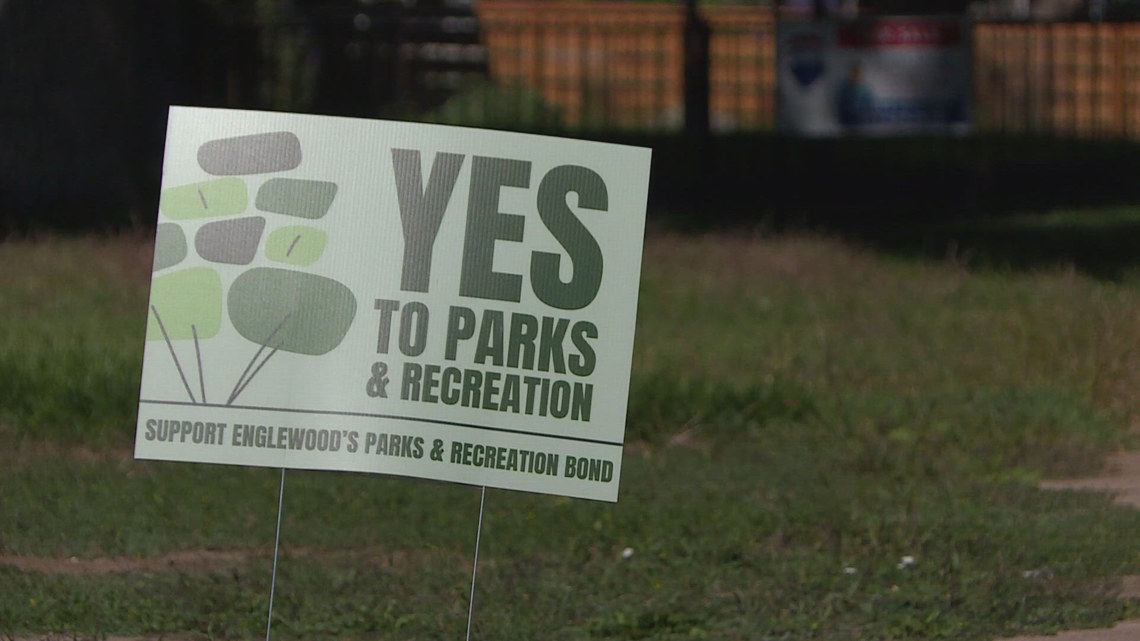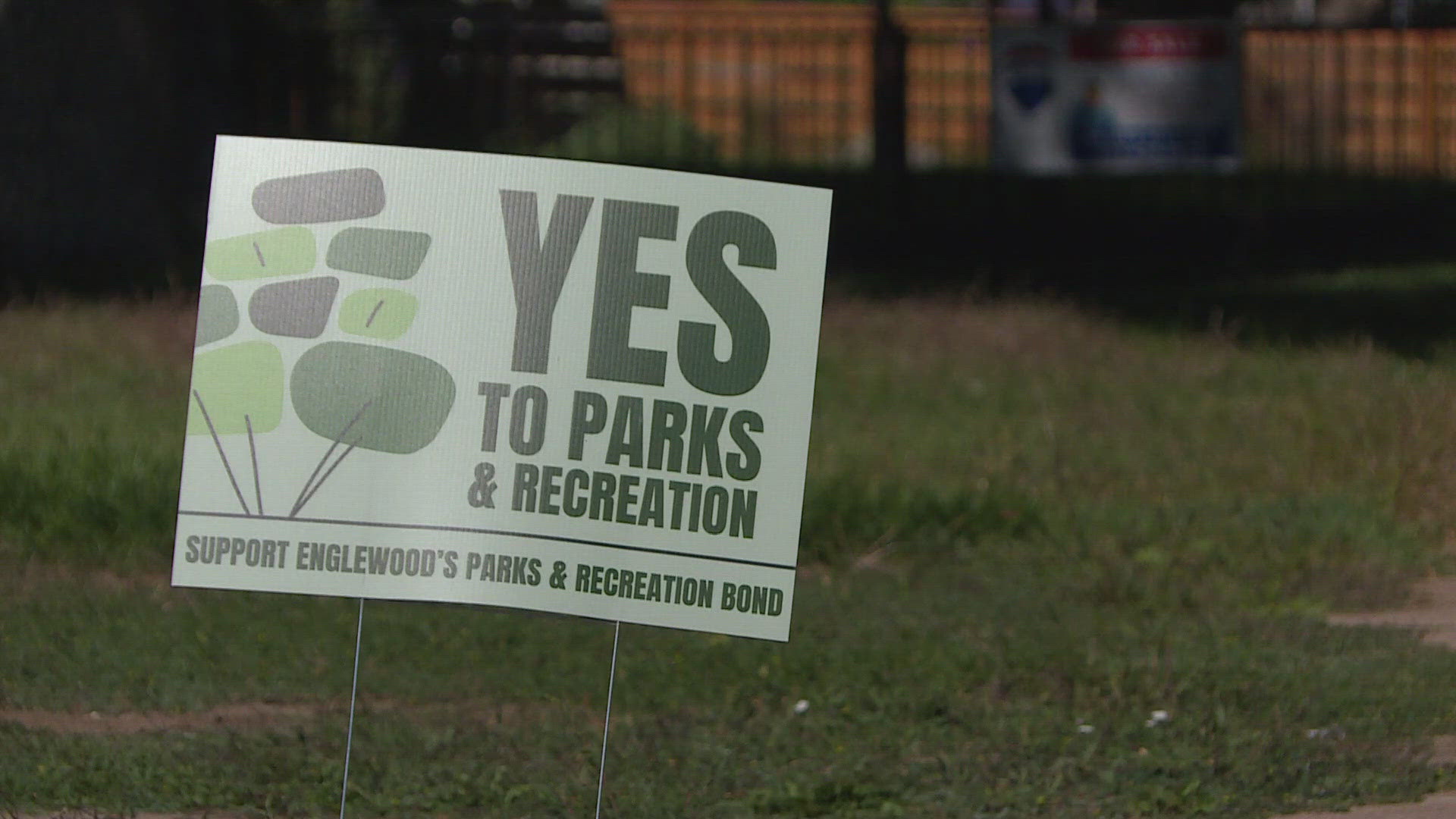ENGLEWOOD, Colo. — The city that had to sue itself to get a parks and recreation bond issue on the ballot is now asking residents to return yard signs that say vote “Yes” on that issue.
Englewood’s city manager is trying to get 250 “Yes to Parks & Recreation” signs returned.
The parks and rec bond issue would raise property taxes to fund $41.5 million in parks and rec improvements. The city sued itself last month because the city’s charter said that bond issues can be the only question on a ballot. A citizen-initiated effort to get two questions on the ballot complicated that part of the city charter. A judge ruled that all ballot issues can coexist.
City councils and county commissioners can ask you to vote on an issue, but it is illegal for the city or county to spend taxpayer dollars to ask people to vote “Yes” or “No.”
"This was not something we should have done. We regret doing it, and here's how we want to try to make this right,” Englewood City Manager Shawn Lewis said at a council meeting on Monday night.
The Englewood Herald first reported that the city spent $2,162.50 on 250 “Yes” signs.
A state law called the Fair Campaign Practices Act prevents cities and counties from spending tax dollars advocating for or against candidates or ballot issues.
However, the city bought the “Yes” signs before the parks bond qualified for the ballot.
“While we were not in violation of the Fair Campaigns Practice Act by making this purchase before city council finalized the ballot language for the ballot, it was not a wise use of our funds,” Lewis said. “We don't want to ever be spending taxpayer dollars on things that are for advocating for or against a ballot measure.”
Lewis laid out a timeline that showed the signs were ordered in July and paid for on Aug. 1. City council approved the ballot issue on Aug. 5.
But why would the city ever buy a sign that said “Yes”?
“I think that our parks department staff, which is younger, has not gone through a bond," Lewis said. "In fact, the city of Englewood hasn't gone through a parks bond election in over 20 years, just really didn't understand the public perception issue that could be caused by purchasing a sign that can be used to advocate for more tax dollars.”
The city does have a webpage educating residents on what the bond issue would do, including pro and con statements.
That is allowed under the Fair Campaign Practices Act.
“I think we as a government have the responsibility to inform residents about what's on the ballot," Lewis said. "What we don't have the responsibility, nor should we be doing, is advocating for or against an item.”
Next with Kyle Clark saw two signs in residential yards in Englewood on Wednesday.


“We're working to rectify that by making sure that everyone who asked for a sign and received a sign is actually now giving those signs back,” Lewis said.
Lewis has asked the group campaigning in favor of the bond issue to collect and return the signs, including one that city councilwoman Tena Prange has at her home.
"I personally have a sign at my house,” Prange said at Monday’s council meeting. “Do I need to bring that to the city?
"We would ask that you would, yes,” Lewis replied.
City of Denver Housing Sales Tax Webpage
This week, the city of Denver pulled down a webpage that gave details on the ballot issue that asks voters to increase the sales tax by 0.5% for affordable housing. That webpage did not appear to have any con statements.
A spokeswoman for Denver Mayor Mike Johnston said that the webpage was created while city council was considering the ballot issue.
“We decided to take the page down to avoid any potential confusion now that it is on the ballot.”
Jefferson County TABOR Tax Refunds
Jefferson County still has Taxpayer Bill of Rights revenue limits. Most counties have “de-Bruced,” a term for undoing TABOR limits, named after TABOR’s author Douglas Bruce.
The county is seeking voter permission to keep more tax revenue than is currently allowed.
The county spent $302,947.50 on research before putting the issue on the ballot. Spending taxpayer dollars to research if the county should ask voters permission to keep additional taxpayer dollars is allowed under the Fair Campaign Practices Act. Spending taxpayer dollars to encourage voters to say “Yes” or “No” is illegal.

